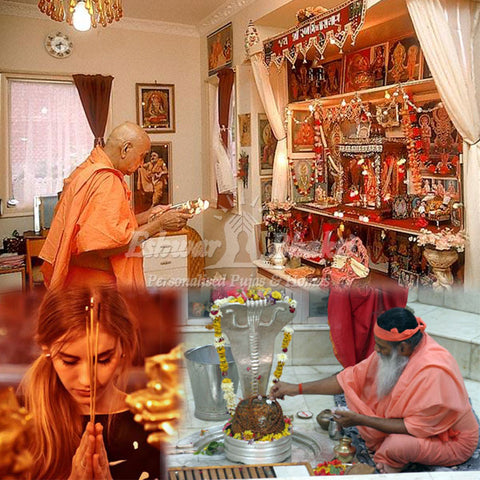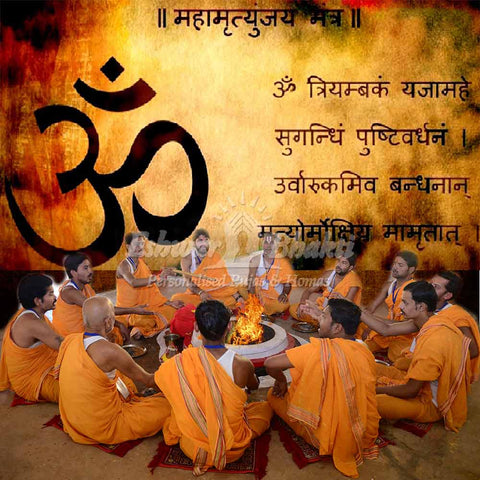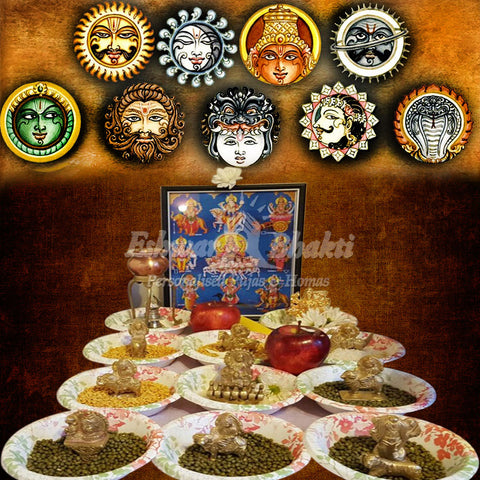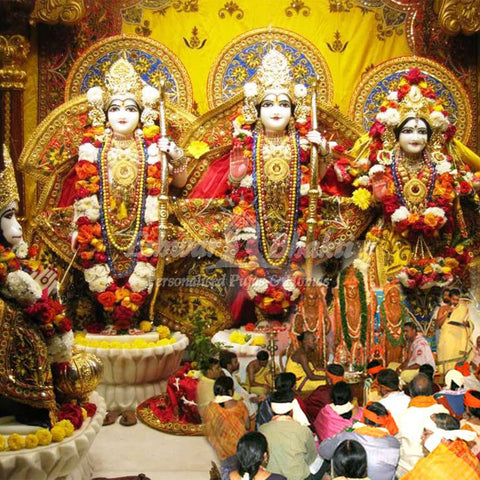What is Yajamana?
Hinduism is a religion that gives much importance to rituals, ceremonies, and pujas. Devotees take part in pujas and yajnas to receive blessings from the Gods and Goddesses. Yajmaan is a person who acts as the patron of a puja or a yajna. A priest conducts a puja on behalf of a Yajmaan. The word, Yajmaan, comes from the Sanskrit word "Yaj" which refers to worship. So, etymologically, Yajmaan is the head of a family or a tribe who performs sacrifices. He looks after all its expenses as well. There are references to the term in some of the Puranas as well as Itihasas.

As per the Hindu belief system, a Yajmaan is a Grihastha or a householder, and he would be a married person. Yajamaan's wife also has a significant role to play during a Yagna or a puja. He is the master of Yagna or a Vedic sacrifice. The priest is someone who assists the Yajmaana during the prayers. After the completion of the puja or yajna, the Yajmaan provides the priest with Dakshina. Yajmaan gives it for the labor the priest has done. It is only through the provision of Dakshina Yajmaan can achieve the fruits of the sacrifice.
As per Puranas and Itihasa, Yajmaan is a person who becomes part of the deity. In Dharmashastra, Yajmaan refers to the mantras recited by a holy person or the sacrificer, as mentioned in the Apastamba-Yajna-Paribhasa-Sutras. Along with the Yajmaan mantras, there are Hotras recited by the Hotr priests. The hymns of the Yajmaan mantra accompany a sacrifice. But, they do not join any sacrificial act. As per the Sanskrit word Yajmaan, it has different meanings. It refers to a person who is the head of a family or a tribe. He can be a person who conducts sacrifices and pays the expenses for it. He can also be a person who worships the deities.
Yajmaan in a puja or yajna: We often translate yajna as a sacrifice and puranic puja as a way of worshipping the divine entities. However, through these two processes, we are invoking the blessings of the Gods and Goddesses. It is a way that helps us to improve spiritually, religiously, emotionally, and psychologically. When we participate in a Yajna or a puja, it assists us in moving forward in the realm of spirituality.
Yajna is a significant ritual of a society. It begins with the setting up of the fire altar by pouring ghee with the accompaniment of mantras. Yajmaan is the leader or patron of the Yagna. He initiates it and provides financial assistance for the process. He gives the wood, offerings for the flames, and also the dakshina (fees) for the priests. After each offering, he would say, "Svaha" which means "So I give." As per the belief, if a Yagna is successful, the deity or Bhagwan appears and would provide the blessings. The Yajmaan would convey his wishes, and the Bhagwan would say, "Tatasthu." The prime benefactor of a yajna is the Yajmaan. But he offers or shares his blessings with the community who are attending the ritual. Upon completion of the yajna, the priest would receive his dakshina before he leaves. Yajna, thus, is a metaphor for the process of sowing and reaping. Here, it begins with Svaha or the giving. It ends with Tathastu or the receiving of the blessings from the Lord. There are other sacrifices as well, which include the provision of food for the people in the temple. Here, the priest acts as the benefactor or the patron. Akin to a yajna, a Yajmaan is a worshipper or the provider in a puja.
Responsibilities of a Yajmaan: Yajmaan is someone who conducts or hosts a puja or a yajna. He is usually a married person and plays a significant role in the puja or yajna along with the priests. In a puja, the Hotr priest is the person who chants mantras from the Rig Veda. Adhvaryu is the Brahmin who looks after the ways of conducting the yajna or puja. He performs it based on the procedures given in the Yajur Veda. Udgata is someone who chants the mantras from the Sama Vedha. The Brahmachari is the representation of Brahma. The Hotr, the Udgata, the Brahma, and the Advaryu together stand for the four Vedas. Apart from the priest, the Yajmaan plays a vital role in the process of a puja or a yajna. Some of his responsibilities include:
1. Yajmaan organizes the yajna or puja for his benefit. He shares the blessings to the people who witnessed the puja or yajna.
2. Yajmaan looks after the financial aspects of the ritual. He pays for the entire process and also offers Dakshina to the priest for his labor.
3. During the puja or yajna, he has the responsibility to repeat "Svaha" after the priest makes each of the offerings.
4. After the completion of the puja, he receives blessings from the divine entity, which he shares with the people.
These are some of the responsibilities of a Yajmaan in puja or a yajna. Conducting pujas and yajnas can have several benefits. It is a way of embracing the divinity within us. It is also a way of connecting with the Gods and Goddesses. We can imbibe positive energy while participating in a Yajna or puja. Yajmaan, the person who conducts a yajna, also receives positive vitalities from the puja or yajna. It helps in attaining wisdom, prosperity, and happiness.




